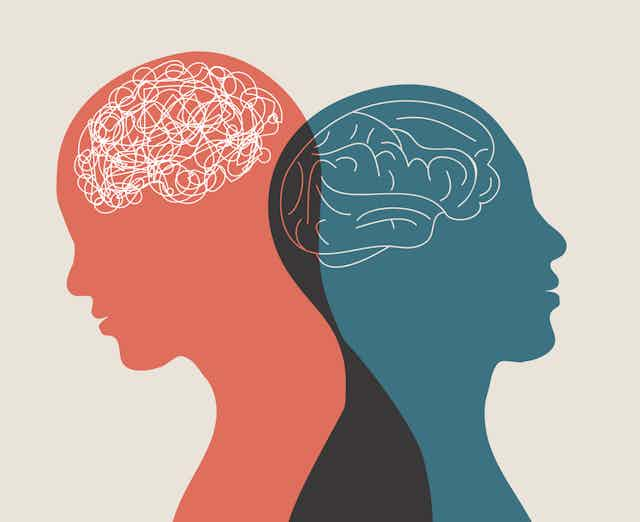Your Course to Recovery: Insights from the Best Psychologist in Delhi
Wiki Article
Psych Therapy: A Comprehensive Overview to Strategies and Outcomes
:max_bytes(150000):strip_icc()/81860243-56a793575f9b58b7d0ebd6a7.jpg)
Cognitive-Behavioral Treatment
Cognitive-Behavioral Treatment (CBT) is a widely made use of psychotherapeutic strategy that concentrates on identifying and modifying useless thinking and actions patterns. Established in the 1960s by Aaron T. Beck, CBT integrates cognitive and behavioral theories to address numerous mental health problems, including clinical depression, stress and anxiety, and stress-related disorders. The facility of CBT is that maladaptive thoughts add to emotional distress and maladaptive habits. By restructuring these ideas, individuals can attain significant improvements in their emotional health and everyday performance.Techniques such as cognitive restructuring, exposure therapy, and skill-building workouts are frequently used. Cognitive restructuring involves tough and altering unfavorable idea patterns, while direct exposure therapy intends to lower concern and anxiousness with gradual exposure to been afraid items or situations.
Evidence-based research study sustains the efficacy of CBT for a wide variety of mental disorders - Best Psychologist in Delhi. Its focus on skill procurement and self-help strategies equips customers to proceed development independently after treatment wraps up. The adaptability and effectiveness of CBT have actually made it a cornerstone in modern psychotherapeutic method
Psychodynamic Methods
Rooted in the very early theories of Sigmund Freud, psychodynamic approaches concentrate on checking out the subconscious mind and its influence on actions and feelings. These methods intend to reveal hidden thoughts and sensations that may be driving maladaptive actions and mental distress. Central to this approach is the idea of inner problem, typically stemming from unsettled previous experiences, particularly those from childhood years.Therapists utilizing psychodynamic techniques utilize several crucial techniques, consisting of totally free organization, where patients are motivated to speak freely to expose subconscious material, and dream evaluation, which translates the unrealized material of desires. In addition, the exploration of transfer and countertransference characteristics within the therapeutic connection is crucial. These communications can provide understandings into the client's inner globe and relational patterns.
Psychodynamic treatment is usually longer-term compared to various other methods, providing a extensive and deep understanding of the person's psyche. Research study shows that it can be particularly effective for intricate mental health and wellness issues, such as individuality problems and chronic anxiety. By cultivating self-awareness and psychological understanding, psychodynamic treatment looks for to bring unconscious product to consciousness, making it possible for individuals to achieve purposeful and lasting adjustment in their lives.
Humanistic Techniques
Structure on the structures laid by psychodynamic strategies, humanistic strategies use an unique point of view focused on specific possible and self-actualization. Originating in the mid-20th century, these techniques prioritize the intrinsic benefits and development capacity of people, highlighting an alternative view of human experience. Trick numbers such as Carl Rogers and Abraham Maslow have substantially affected this healing technique, which encompasses approaches like client-centered therapy and Gestalt therapy.Client-centered treatment, established by Rogers, plays a pivotal duty in humanistic methods. It counts on the therapist providing a setting of unconditional favorable regard, compassion, and congruence. This promotes a secure room for clients to discover try this website their feelings and experiences without judgment, helping with self-discovery and personal growth. The specialist's function is more of a facilitator than an authority, urging clients to harness their internal resources for recovery.
Gestalt therapy, an additional important humanistic strategy, emphasizes present minute awareness and the combination of mind and body. By concentrating on the "present moment," customers acquire better insight into their present feelings and behaviors. Methods such as role-playing and led visualization are commonly employed to assist customers obtain a deeper understanding of themselves, eventually bring about enhanced self-awareness and satisfaction.
Integrative Treatments
Integrative treatments represent a synthesis of different restorative methods customized to fulfill the unique requirements of each client. This approach recognizes the intricacy of human psychology and the complex nature of mental health and wellness concerns. By combining elements from different institutions of psychotherapy-- such as cognitive-behavioral therapy (CBT), psychodynamic treatment, and humanistic approaches-- integrative treatments supply an even more adaptable and holistic therapy standard.Specialists of integrative therapy evaluate each customer's details needs, symptoms, and personal history to develop a personalized treatment plan. This customized strategy boosts the possibility for healing success by dealing with the root causes over at this website of emotional distress and advertising total health. Strategies may consist of mindfulness workouts, cognitive restructuring, and psychological processing, each selected to target different aspects of the customer's concerns.
Additionally, integrative therapies emphasize the therapeutic relationship, seeing the client-therapist bond as an essential part of efficient treatment. This partnership fosters a supportive setting where customers feel safe to discover and resolve their issues. The flexibility of integrative treatments makes them ideal for a broad series of conditions, including anxiousness, anxiety, injury, and interpersonal difficulties, thus raising their applicability and effectiveness in diverse scientific settings.

Gauging Therapy End Results
Assessing the efficiency of psychotherapy is vital for both clients and clinicians to make certain that the therapy is yielding the preferred results. To attain this, different methods and tools are utilized to gauge treatment results systematically. Standard assessment instruments, such as the Beck Clinical Depression Stock (BDI) and the Generalized Anxiousness Disorder 7 (GAD-7), give quantitative information on symptom extent and helpful site modifications over time.In enhancement to standard tools, qualitative methods like customer self-reports and scientific meetings offer important understandings into the personal experiences and regarded progression of clients. Consistently scheduled examinations, commonly at the beginning, middle, and end of therapy, aid in tracking the trajectory of enhancement or identifying areas needing modification.
End result measurement is not limited to symptom reduction; it likewise incorporates useful improvements in everyday life, such as much better social partnerships, raised job performance, and improved total health. Modern advancements in digital health have actually presented mobile applications and on the internet platforms that facilitate real-time monitoring and comments, better improving the assessment procedure.
Inevitably, an extensive approach to gauging therapy end results ensures that healing interventions work, reliable, and customized to meet the private needs of customers, consequently maximizing the total therapeutic experience.
Final Thought
Humanistic methods concentrate on individual development and self-actualization, while integrative therapies combine several methods for customized treatment plans. Examining treatment results through qualitative approaches and standard assessments guarantees a comprehensive understanding of efficiency, inevitably guiding clients towards withstanding mental wellness renovations.From the structured technique of Cognitive-Behavioral Therapy (CBT) to the deep expedition of the subconscious in psychodynamic therapy, each approach brings unique advantages. Its emphasis on skill procurement and self-help methods equips customers to continue development independently after therapy wraps up (Best Psychologist in Delhi). Trick figures such as Carl Rogers and Abraham Maslow have substantially influenced this restorative method, which encompasses techniques like client-centered therapy and Gestalt treatment

Report this wiki page